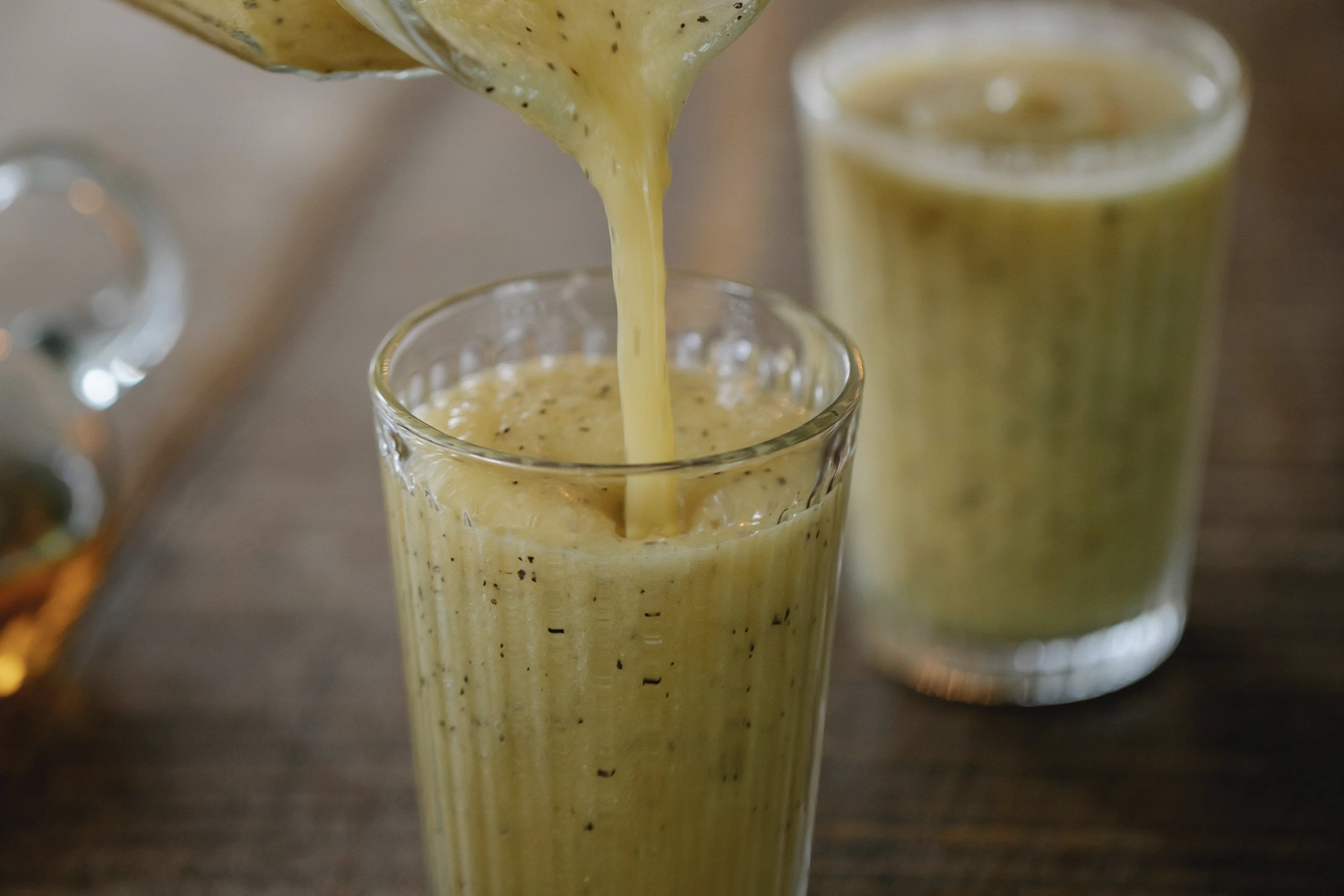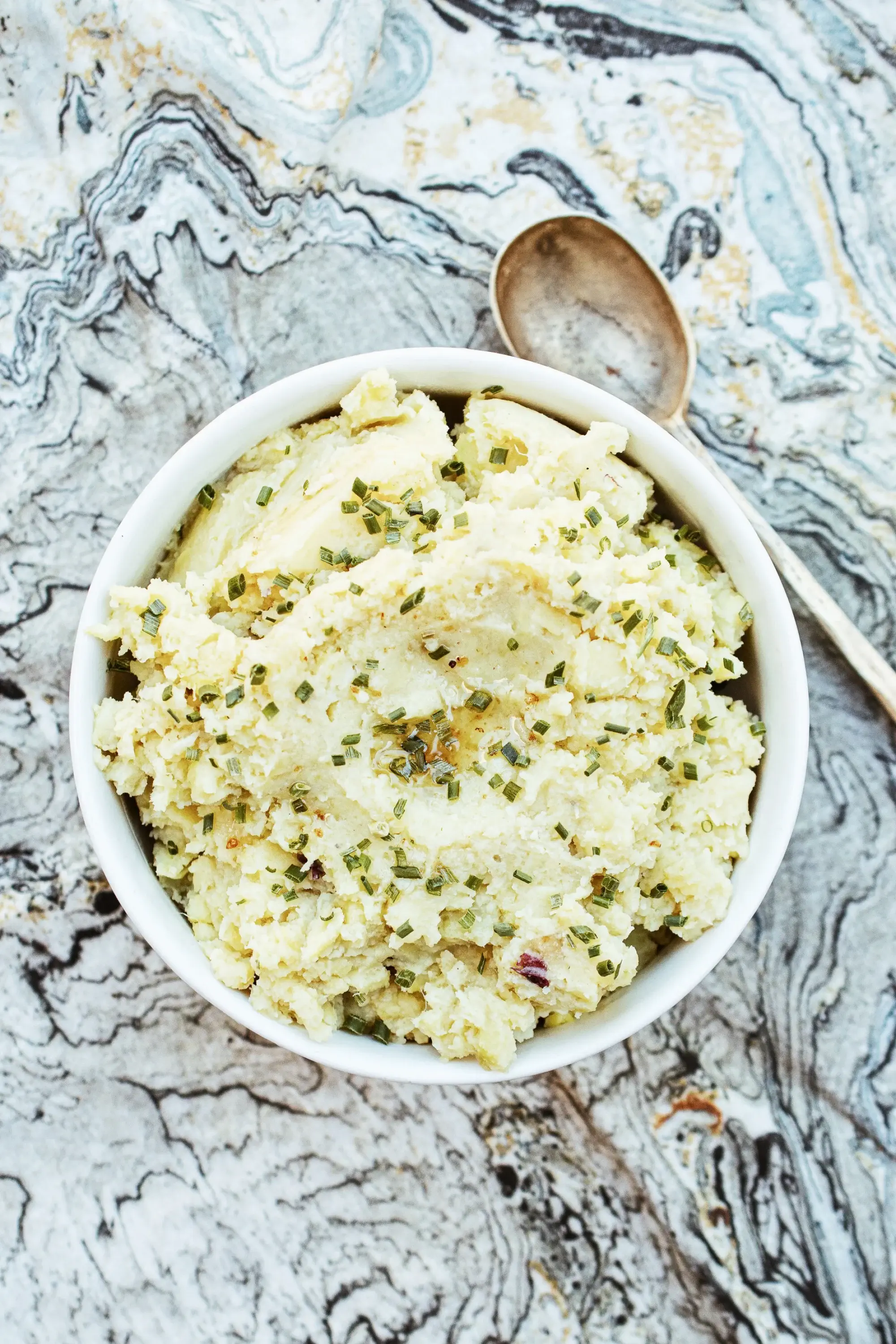Lupus is an autoimmune condition impacting 1.5 million Americans, 90% of whom are women of childbearing age. While there are different forms of lupus, the most common kind is systemic lupus erythematosus (SLE), or systemic lupus, accounting for 70% of cases. (Source)
There's no set diet for those living with lupus, but eating well and incorporating anti-inflammatory foods can help manage both the symptoms and the long term effects. Let's take a look at what the science says. (Source)
 2 (1) (1).webp)
The Symptoms of Lupus
Lupus causes inflammation in tissues that are otherwise healthy, resulting in pain and swelling. While there are no two cases of lupus that are alike, the most common symptoms are:
- fatigue
- fever
- stiffness, swelling and pain in the joints
- a rash on the face (bridge of the nose and cheeks), as well as on other parts of the body
- skin lesions that get worse when exposed to sun
- changes in color to fingers and toes when under stress or exposed to cold temperatures
- shortness of breath
- chest pain
- dry eyes
- headaches
- confusion
- memory loss
Lupus symptoms can change over time, and they also can resemble the symptoms of other conditions, so if you're experiencing any of these, pay a visit to your health care provider. (Source, Source)
Lupus Flares
When lupus symptoms get worse and you're feeling sick, that's what's known as a flare. Flares can be mild or severe, and also unpredictable, although there may be indications that one is pending, such as:
- dizziness
- feeling more tired than usual
- pain
- stomach ache
- fever
- headache
- rash
 4 (1).webp)
Flare Triggers
Lupus flares can come out of nowhere, and some things that trigger some with lupus may not affect others. There are a number of known triggers for lupus flares, as well as ways to manage them.
- Excessive exposure to the sun can rev up lupus symptoms. While healthy immune systems clear cells damaged by UV rays, the immune systems of those with lupus don't, so those cells stick around and trigger an attack, and therefore, a flare.
- If you smoke and you have lupus, it's recommended that you quit, since smoking has been associated with inflammation and lupus flares.
- Both emotional and physical stress can provoke lupus flares, and depression and anxiety are prevalent in those with lupus (25% have depression, 37% have anxiety).
- The antibiotics bactrim and septra (sulfamethoxazole and trimethoprim) should be avoided by those with lupus, since they cause both sun sensitivity and lower blood counts, which can lead to flares.
(Source, Source, Source, Source, Source)
Some foods and supplements can antagonize lupus symptoms. Let's take a look at the role of diet in lupus.
 7 (1) (1).webp)
Is There a Diet That's Best for Those With Lupus?
In a way, this is a trick question. As we said at the start of the piece, there's no established diet that's best for everyone with lupus. That being said, there are some guidelines, including certain foods and supplements to be avoided, and others that science has deemed a good idea for those living with lupus. Any changes made to your diet should be discussed with your health care provider.
Overall, maintaining good nutritional habits is a positive step toward managing lupus symptoms and enjoying the best quality of life possible. Eating a well-balanced diet, including vegetables, fruits, whole grains, proteins, and healthy plant oils, as well as staying active and hydrated, can:
- reduce inflammation and its symptoms
- prevent nutrient deficiencies. In particular, vitamin D deficiency is common in those with lupus, and a lack of vitamin D can lead to osteoporosis.
- combat side-effects of medications. Lupus medications can cause weight gain, gastrointestinal issues, an increased risk of heart problems, and more, so staying on top of nutrition is essential.

.svg)
.png)


%201 (2) (1).webp)

 9 (1) (1).webp)
 10 (1).webp)
 5 (1).webp)
 6 (1).webp)







.webp)



.png)

 (1).webp)









 (1).jpeg)

.webp)
.webp)

.webp)

 (2).webp)

%201 (1).webp)

 2 (1).webp)




.svg)
.svg)